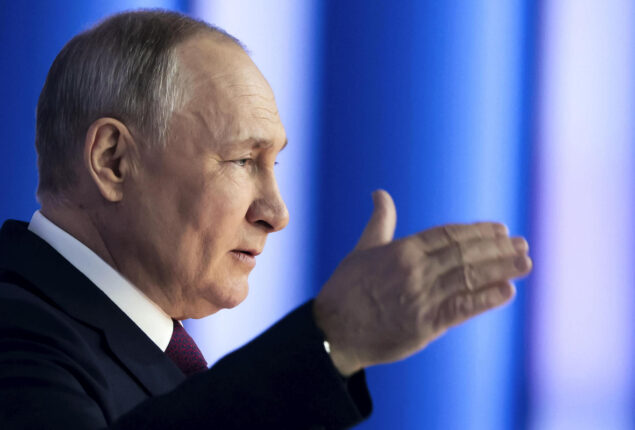US diplomat: “What’s it like to negotiate with Putin?”
The US ambassador to Russia told the sources about how difficult it...

Putin revokes the decision that established Moldova’s sovereignty in separatist conflict
President Vladimir Putin revoked a 2012 decree that in part supported Moldova’s sovereignty in deciding the future of the Transdniestria area, a Moscow-backed separatist enclave bordering Ukraine and where Russia maintains troops.
The directive, which contained a Moldova component, laid out Russia’s foreign policy 11 years ago, assuming greater cooperation between Moscow and the European Union, and the United States.
The order canceling the 2012 document was published on the Kremlin’s website and indicates that the decision was taken to “secure the national interests of Russia in conjunction with the substantial developments taking place in international relations”.
It is part of Putin’s anti-Western policies unveiled on Tuesday.
The cancellation, according to Alexandru Flenchea, Moldovan chairman of the joint control commission in the security zone bordering Transdniestria, does not imply that Putin has abandoned the concept of Moldovan sovereignty.
“The decree is a policy document that implements the concept of Russia’s foreign policy,” Flenchea told Publika-TV. “Moldova and Russia have a basic political agreement that provides for mutual respect for the territorial integrity of our countries.”
The Kremlin has stated that Russia’s relations with Moldova, which approved a new pro-Western prime minister last week who has pledged to pursue an EU membership campaign, are highly strained. Moldova was accused of having an anti-Russian agenda.
Moldova, one of Europe’s poorest countries, has been led by President Maia Sandu since 2020, with strong U.S. and European Union support. On Tuesday, US President Joseph Biden met with her in Poland to express his support.
The 2012 proclamation committed Russia to explore solutions to address the separatist issue “based on respect for the sovereignty, territorial integrity and neutral status of the Republic of Moldova in defining the special status of Transdniestria”.
Transdniestria’s Russian-speaking population seceded from Moldova in 1990, one year before the Soviet Union’s breakup, fearing that Moldova would unite with Romania, with which it shares a common language and culture.
In 1992, newly independent Moldova faced off against separatists in a brief war. Nonetheless, there has been almost no violence in the last 30 years, with Soviet “peacekeepers” remaining stationed in the little sliver of land that has no international recognition.
The foreign ministry of Moldova stated that it would “seriously review” the text.
Catch all the Russia News, World News, Breaking News Event and Latest News Updates on The BOL News
Download The BOL News App to get the Daily News Update & Follow us on Google News.